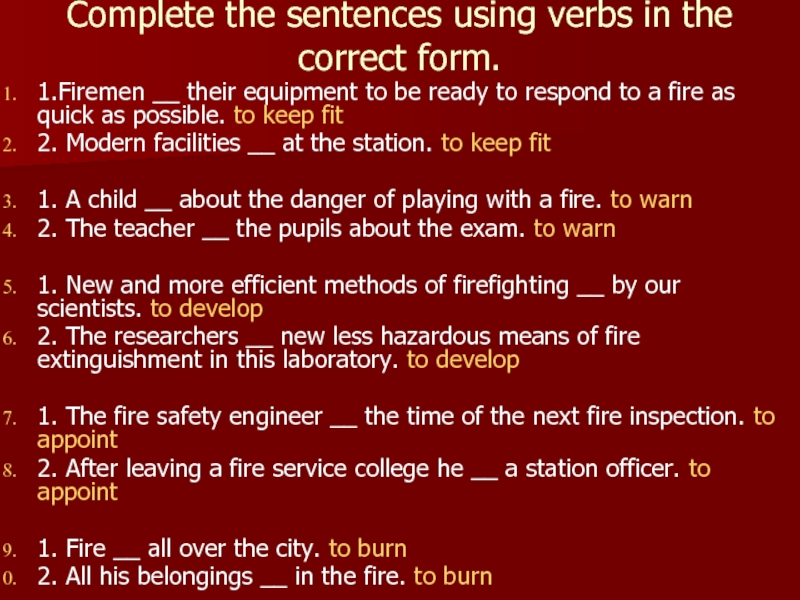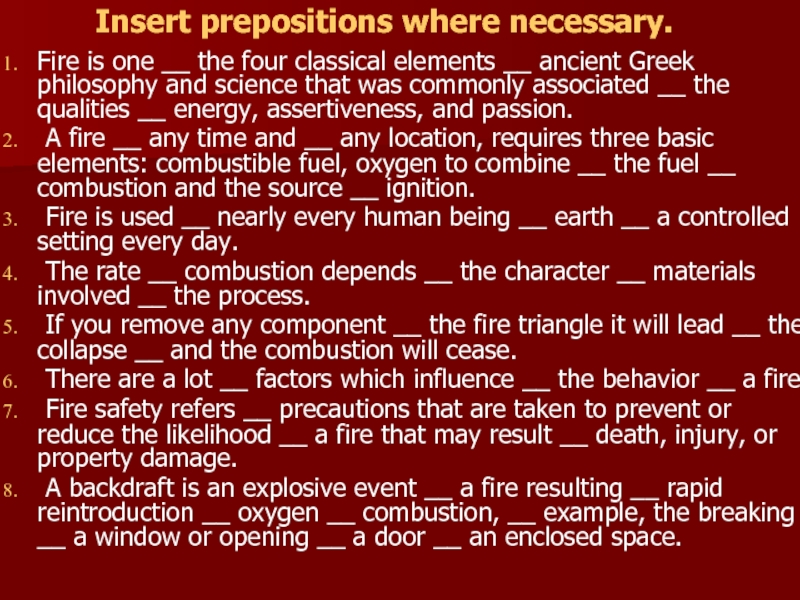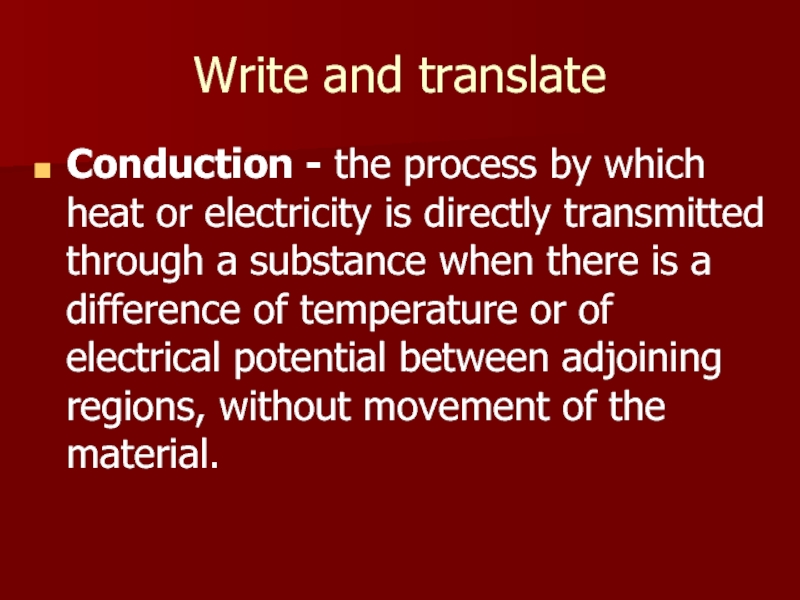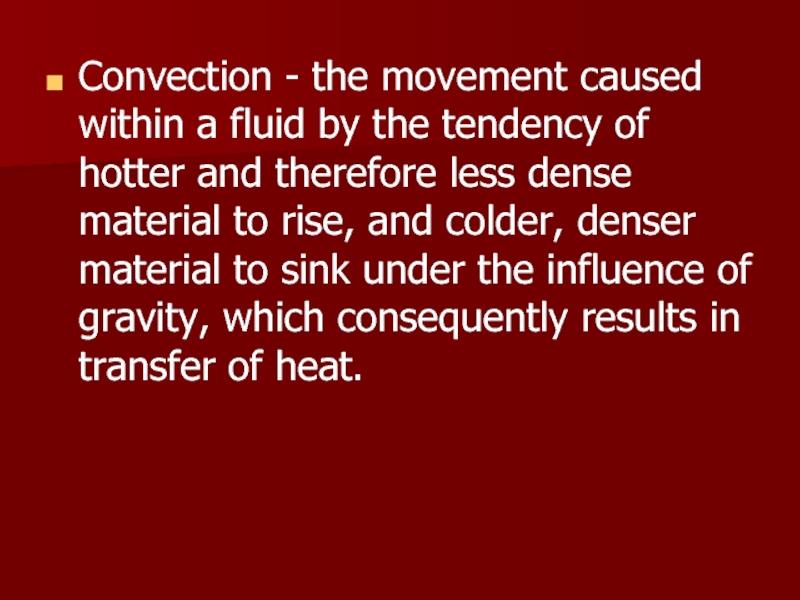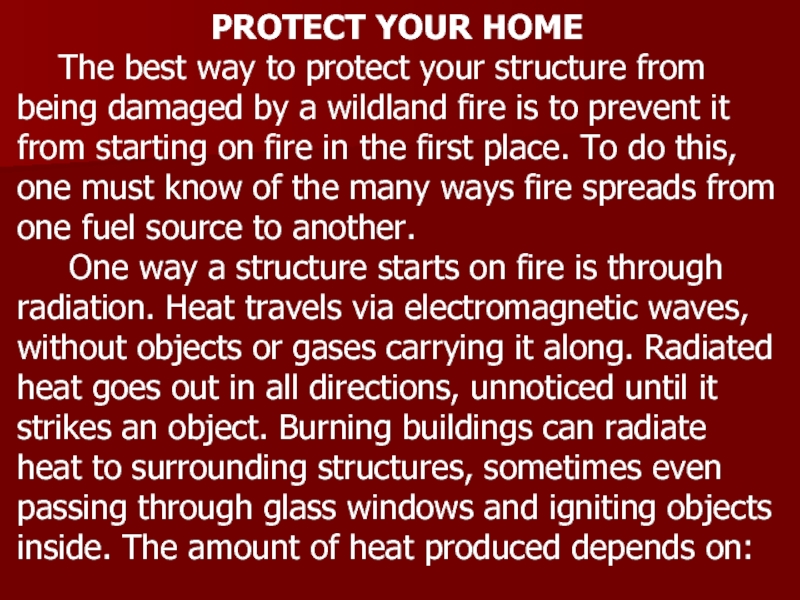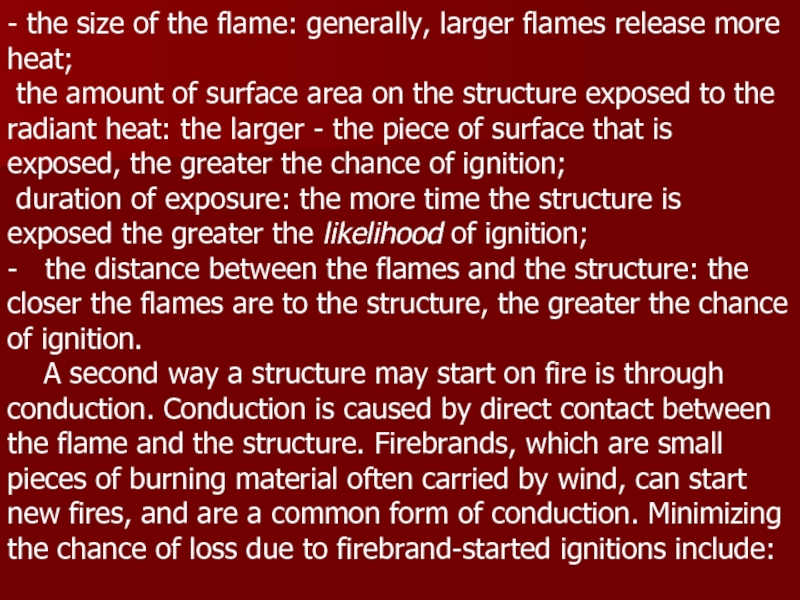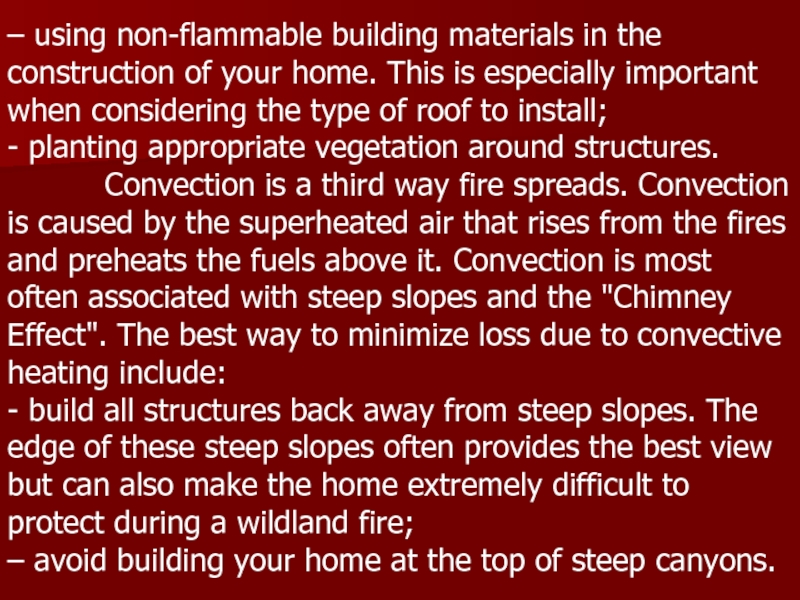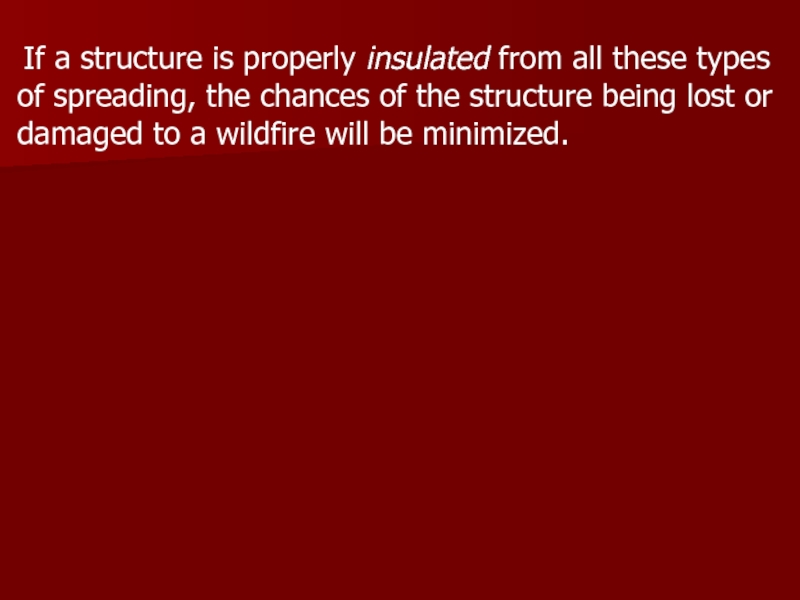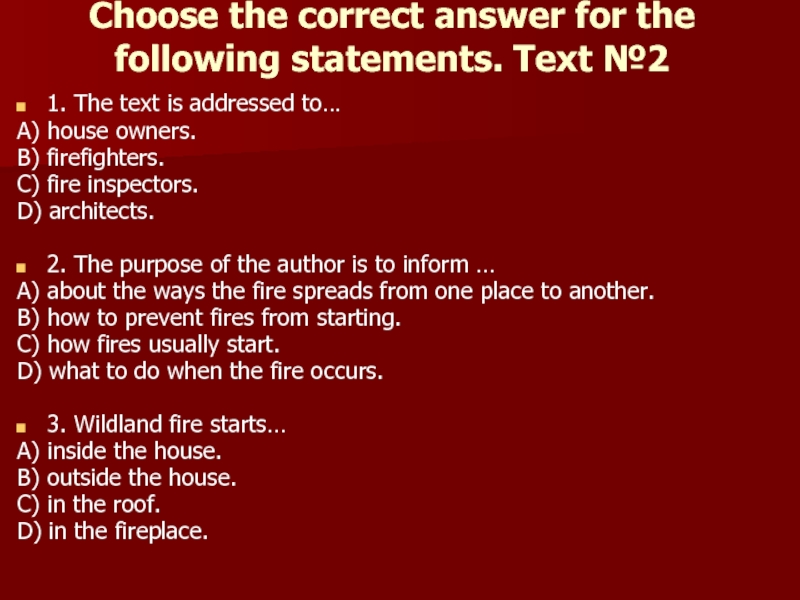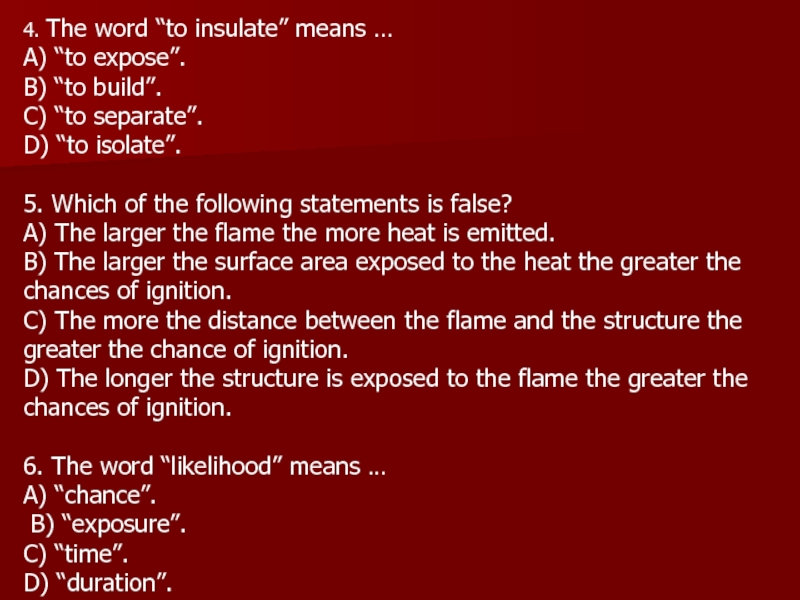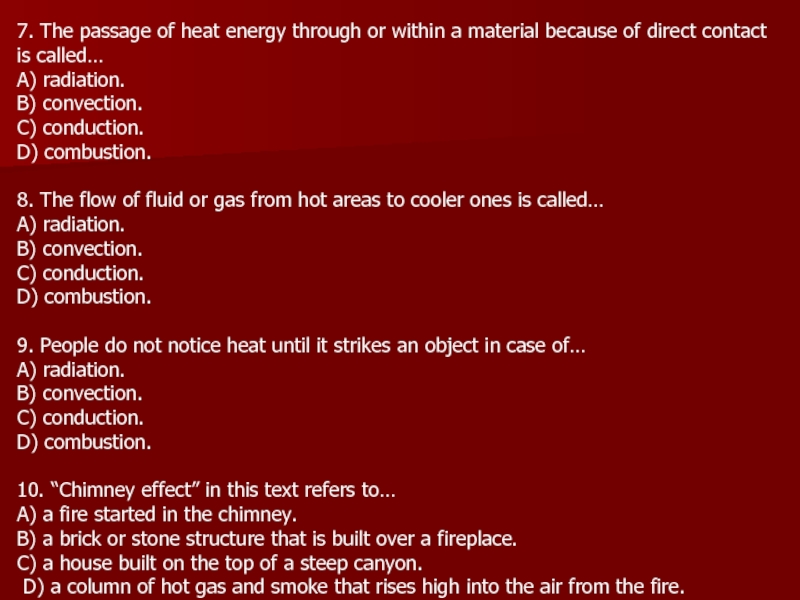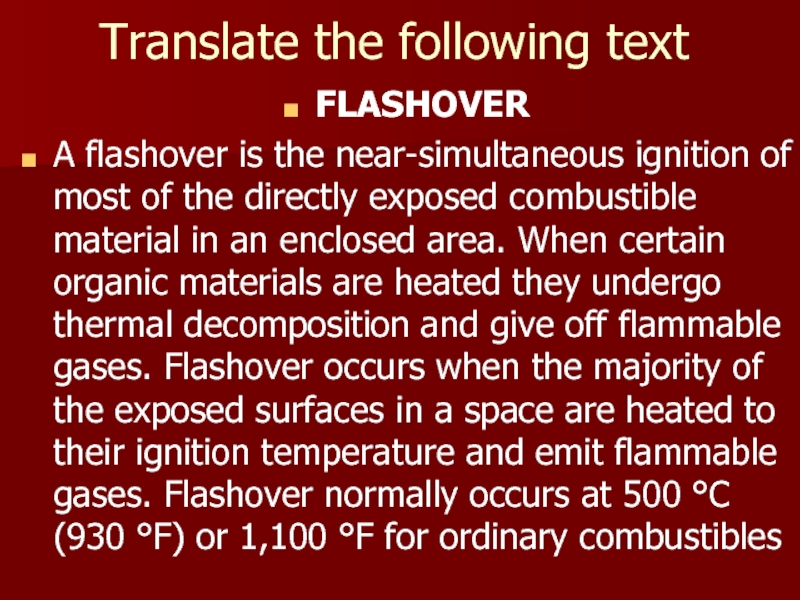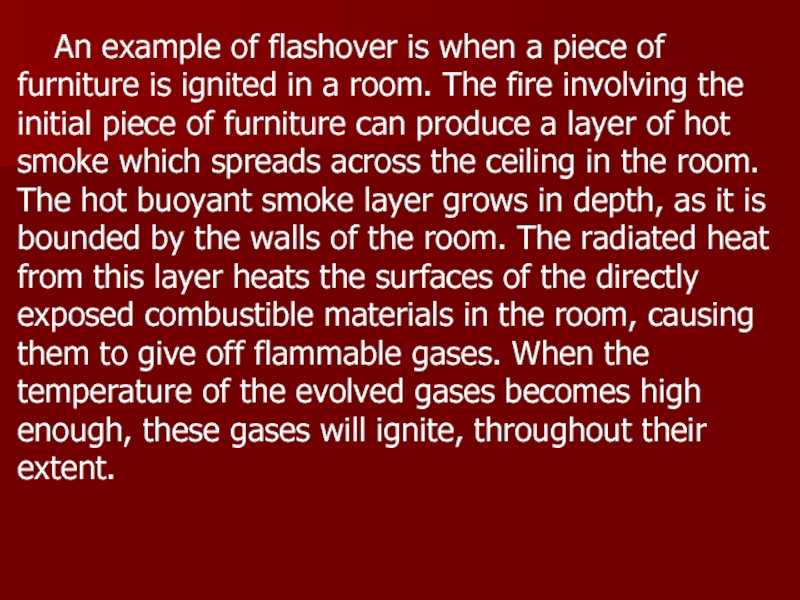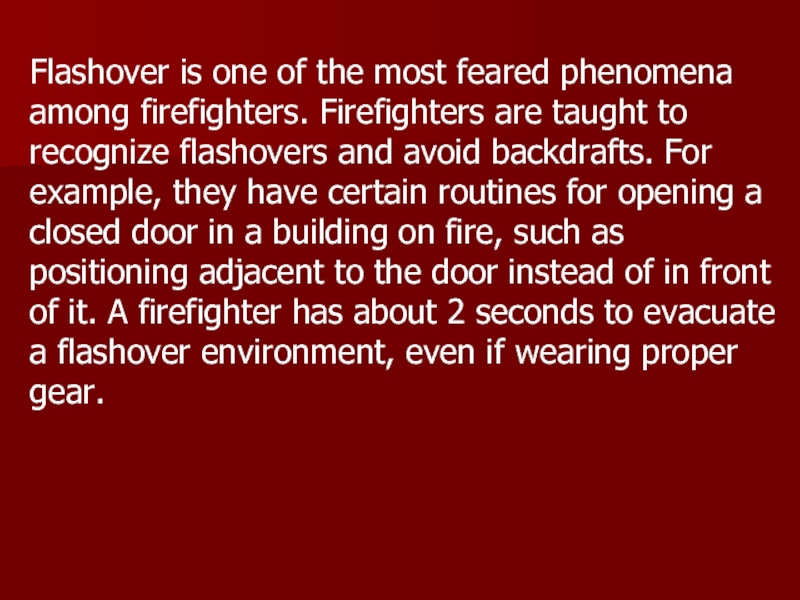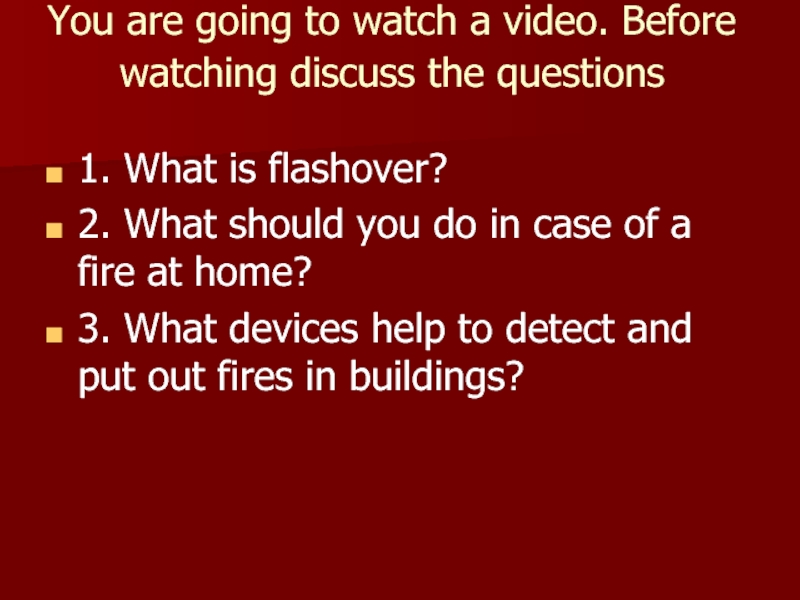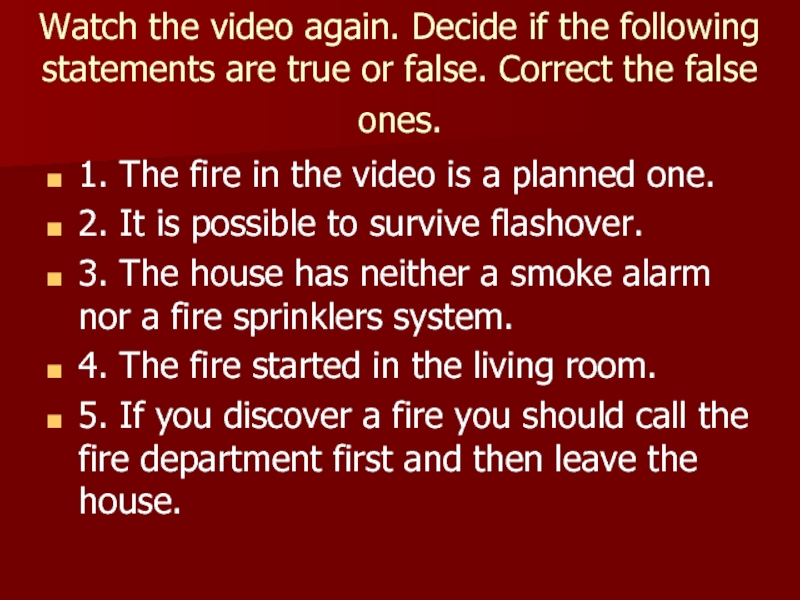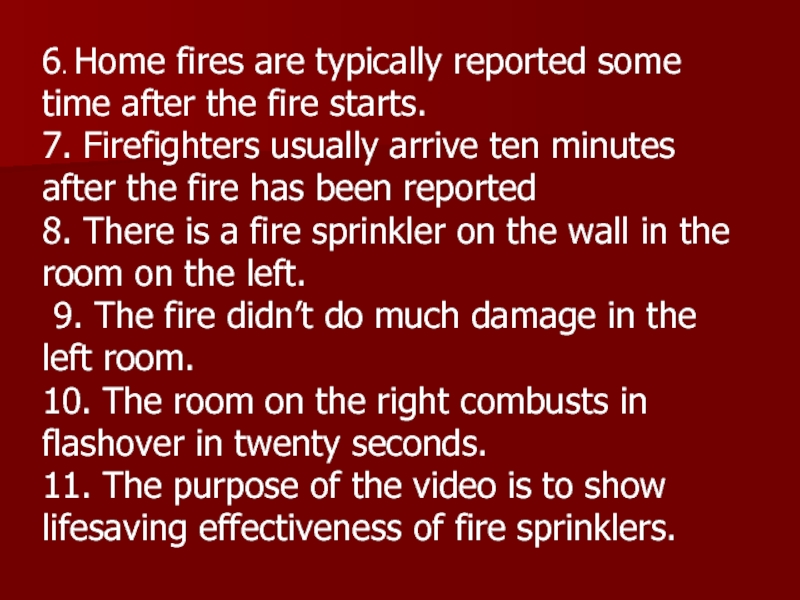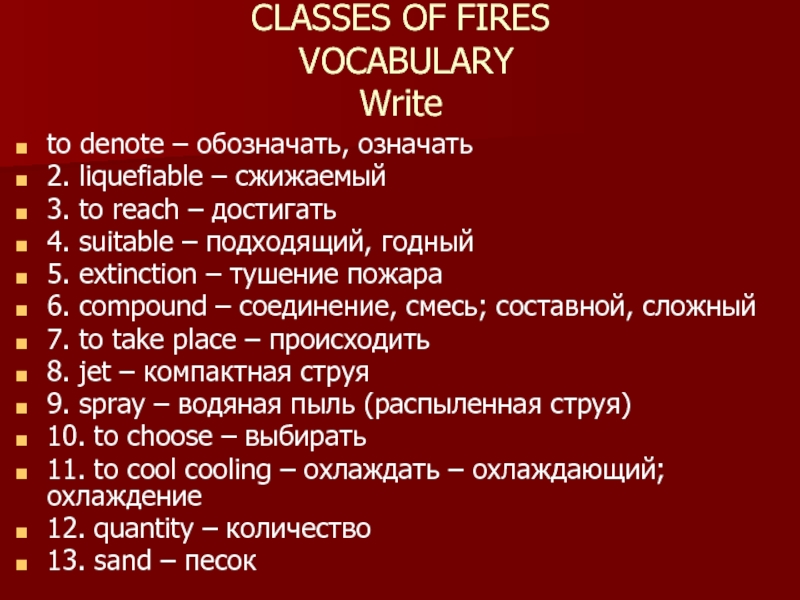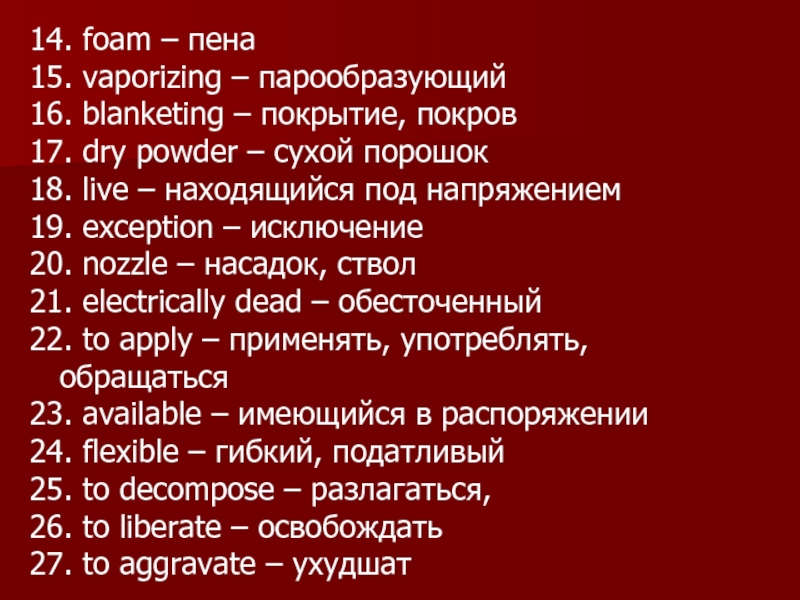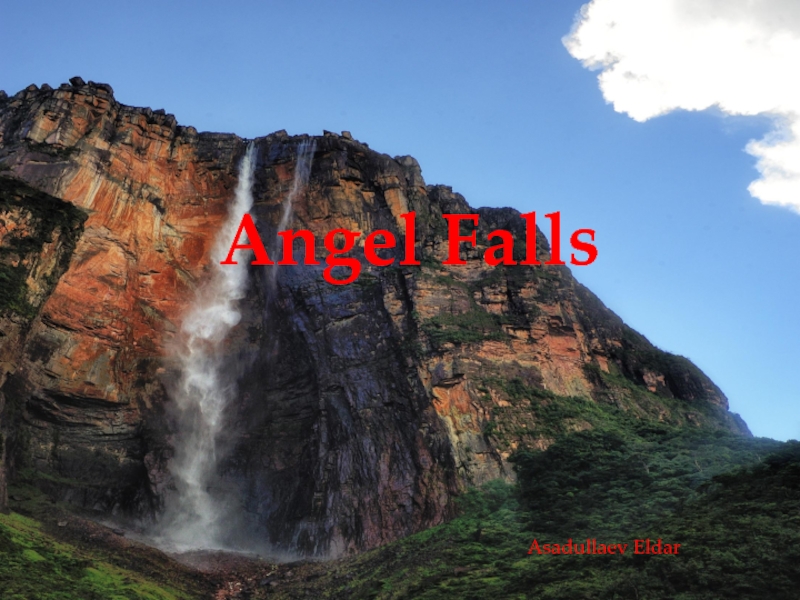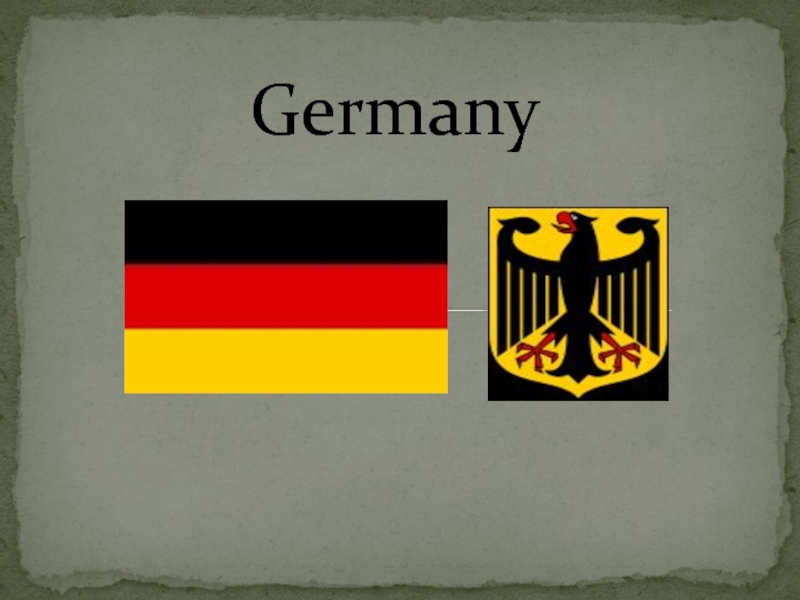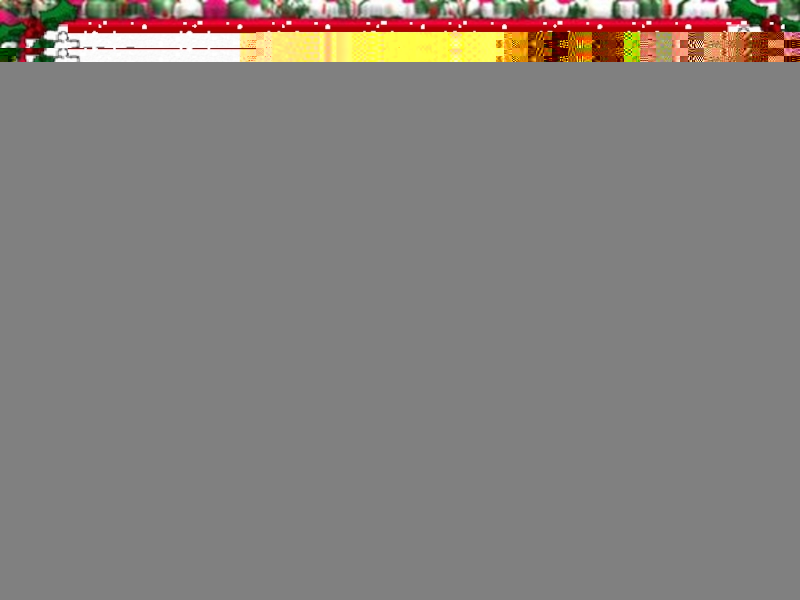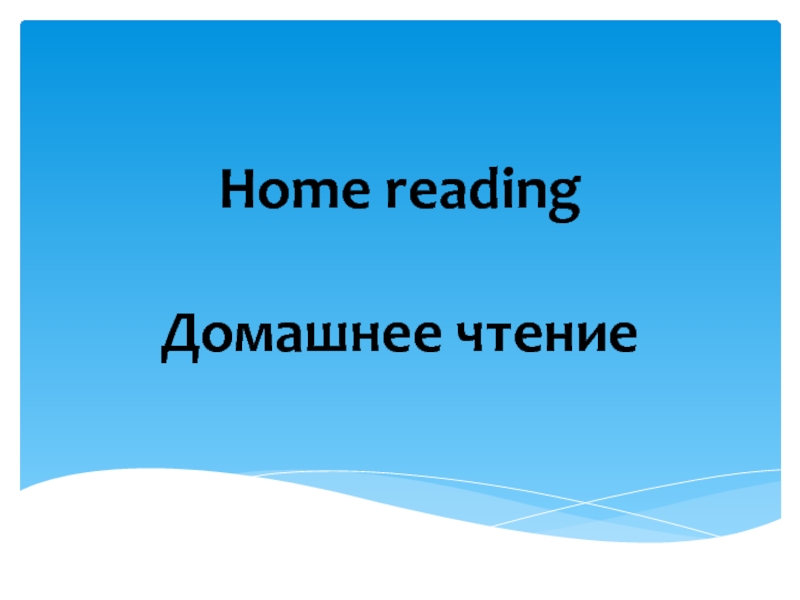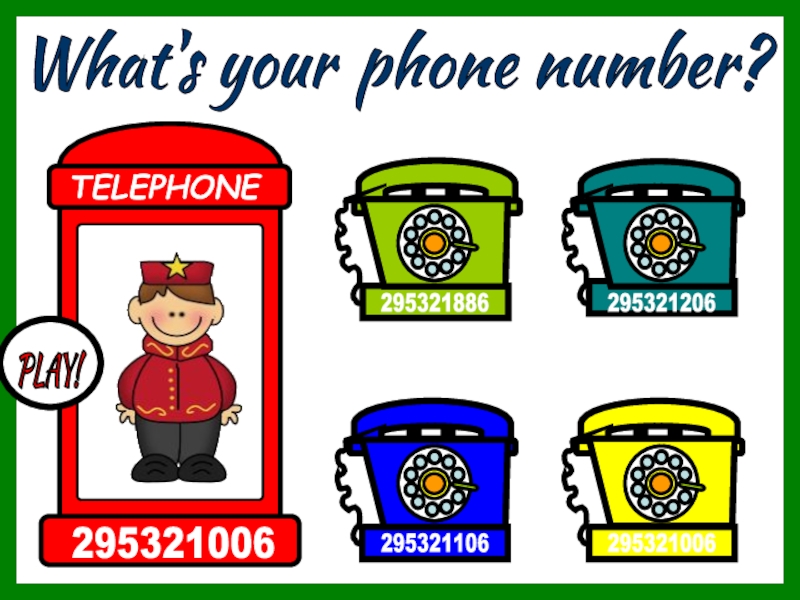- Главная
- Разное
- Дизайн
- Бизнес и предпринимательство
- Аналитика
- Образование
- Развлечения
- Красота и здоровье
- Финансы
- Государство
- Путешествия
- Спорт
- Недвижимость
- Армия
- Графика
- Культурология
- Еда и кулинария
- Лингвистика
- Английский язык
- Астрономия
- Алгебра
- Биология
- География
- Детские презентации
- Информатика
- История
- Литература
- Маркетинг
- Математика
- Медицина
- Менеджмент
- Музыка
- МХК
- Немецкий язык
- ОБЖ
- Обществознание
- Окружающий мир
- Педагогика
- Русский язык
- Технология
- Физика
- Философия
- Химия
- Шаблоны, картинки для презентаций
- Экология
- Экономика
- Юриспруденция
Complete the sentences using verbs in the correct form презентация
Содержание
- 1. Complete the sentences using verbs in the correct form
- 2. Insert prepositions where necessary. Fire is one
- 3. Write and translate Conduction - the process
- 4. Convection - the movement caused within a
- 5. PROTECT YOUR HOME The
- 6. - the size of the flame: generally,
- 7. – using non-flammable building materials in the
- 8. If a structure is properly insulated
- 9. Choose the correct answer for the following
- 10. 4. The word “to insulate” means …
- 11. 7. The passage of heat energy through
- 12. Translate the following text FLASHOVER
- 13. An example of flashover
- 14. Flashover is one of the most feared
- 15. You are going to watch a video.
- 17. Watch the video again. Decide if the
- 18. 6. Home fires are typically reported some
- 19. CLASSES OF FIRES VOCABULARY Write
- 20. 14. foam – пена 15. vaporizing
Слайд 1Complete the sentences using verbs in the correct form.
1.Firemen __ their
2. Modern facilities __ at the station. to keep fit
1. A child __ about the danger of playing with a fire. to warn
2. The teacher __ the pupils about the exam. to warn
1. New and more efficient methods of firefighting __ by our scientists. to develop
2. The researchers __ new less hazardous means of fire extinguishment in this laboratory. to develop
1. The fire safety engineer __ the time of the next fire inspection. to appoint
2. After leaving a fire service college he __ a station officer. to appoint
1. Fire __ all over the city. to burn
2. All his belongings __ in the fire. to burn
Слайд 2Insert prepositions where necessary.
Fire is one __ the four classical elements
A fire __ any time and __ any location, requires three basic elements: combustible fuel, oxygen to combine __ the fuel __ combustion and the source __ ignition.
Fire is used __ nearly every human being __ earth __ a controlled setting every day.
The rate __ combustion depends __ the character __ materials involved __ the process.
If you remove any component __ the fire triangle it will lead __ the collapse __ and the combustion will cease.
There are a lot __ factors which influence __ the behavior __ a fire.
Fire safety refers __ precautions that are taken to prevent or reduce the likelihood __ a fire that may result __ death, injury, or property damage.
A backdraft is an explosive event __ a fire resulting __ rapid reintroduction __ oxygen __ combustion, __ example, the breaking __ a window or opening __ a door __ an enclosed space.
Слайд 3Write and translate
Conduction - the process by which heat or electricity
Слайд 4Convection - the movement caused within a fluid by the tendency
Слайд 5PROTECT YOUR HOME
The best way to protect your
One way a structure starts on fire is through radiation. Heat travels via electromagnetic waves, without objects or gases carrying it along. Radiated heat goes out in all directions, unnoticed until it strikes an object. Burning buildings can radiate heat to surrounding structures, sometimes even passing through glass windows and igniting objects inside. The amount of heat produced depends on:
Слайд 6- the size of the flame: generally, larger flames release more
the amount of surface area on the structure exposed to the radiant heat: the larger - the piece of surface that is exposed, the greater the chance of ignition;
duration of exposure: the more time the structure is exposed the greater the likelihood of ignition;
- the distance between the flames and the structure: the closer the flames are to the structure, the greater the chance of ignition.
A second way a structure may start on fire is through conduction. Conduction is caused by direct contact between the flame and the structure. Firebrands, which are small pieces of burning material often carried by wind, can start new fires, and are a common form of conduction. Minimizing the chance of loss due to firebrand-started ignitions include:
Слайд 7– using non-flammable building materials in the construction of your home.
- planting appropriate vegetation around structures.
Convection is a third way fire spreads. Convection is caused by the superheated air that rises from the fires and preheats the fuels above it. Convection is most often associated with steep slopes and the "Chimney Effect". The best way to minimize loss due to convective heating include:
- build all structures back away from steep slopes. The edge of these steep slopes often provides the best view but can also make the home extremely difficult to protect during a wildland fire;
– avoid building your home at the top of steep canyons.
Слайд 8 If a structure is properly insulated from all these types
Слайд 9Choose the correct answer for the following statements. Text №2
1. The
A) house owners.
B) firefighters.
C) fire inspectors.
D) architects.
2. The purpose of the author is to inform …
A) about the ways the fire spreads from one place to another.
B) how to prevent fires from starting.
C) how fires usually start.
D) what to do when the fire occurs.
3. Wildland fire starts…
A) inside the house.
B) outside the house.
C) in the roof.
D) in the fireplace.
Слайд 104. The word “to insulate” means …
A) “to expose”.
B)
C) “to separate”.
D) “to isolate”.
5. Which of the following statements is false?
A) The larger the flame the more heat is emitted.
B) The larger the surface area exposed to the heat the greater the chances of ignition.
C) The more the distance between the flame and the structure the greater the chance of ignition.
D) The longer the structure is exposed to the flame the greater the chances of ignition.
6. The word “likelihood” means …
A) “chance”.
B) “exposure”.
C) “time”.
D) “duration”.
Слайд 117. The passage of heat energy through or within a material
A) radiation.
B) convection.
C) conduction.
D) combustion.
8. The flow of fluid or gas from hot areas to cooler ones is called…
A) radiation.
B) convection.
C) conduction.
D) combustion.
9. People do not notice heat until it strikes an object in case of…
A) radiation.
B) convection.
C) conduction.
D) combustion.
10. “Chimney effect” in this text refers to…
A) a fire started in the chimney.
B) a brick or stone structure that is built over a fireplace.
C) a house built on the top of a steep canyon.
D) a column of hot gas and smoke that rises high into the air from the fire.
Слайд 12Translate the following text
FLASHOVER
A flashover is the near-simultaneous ignition
Слайд 13 An example of flashover is when a piece
Слайд 14Flashover is one of the most feared phenomena among firefighters. Firefighters
Слайд 15You are going to watch a video. Before watching discuss the
1. What is flashover?
2. What should you do in case of a fire at home?
3. What devices help to detect and put out fires in buildings?
Слайд 17Watch the video again. Decide if the following statements are true
1. The fire in the video is a planned one.
2. It is possible to survive flashover.
3. The house has neither a smoke alarm nor a fire sprinklers system.
4. The fire started in the living room.
5. If you discover a fire you should call the fire department first and then leave the house.
Слайд 186. Home fires are typically reported some time after the fire
7. Firefighters usually arrive ten minutes after the fire has been reported
8. There is a fire sprinkler on the wall in the room on the left.
9. The fire didn’t do much damage in the left room.
10. The room on the right combusts in flashover in twenty seconds.
11. The purpose of the video is to show lifesaving effectiveness of fire sprinklers.
Слайд 19CLASSES OF FIRES
VOCABULARY
Write
to denote – обозначать, означать
2.
3. to reach – достигать
4. suitable – подходящий, годный
5. extinction – тушение пожара
6. compound – соединение, смесь; составной, сложный
7. to take place – происходить
8. jet – компактная струя
9. spray – водяная пыль (распыленная струя)
10. to choose – выбирать
11. to cool cooling – охлаждать – охлаждающий; охлаждение
12. quantity – количество
13. sand – песок
Слайд 2014. foam – пена
15. vaporizing – парообразующий
16. blanketing –
17. dry powder – сухой порошок
18. live – находящийся под напряжением
19. exception – исключение
20. nozzle – насадок, ствол
21. electrically dead – обесточенный
22. to apply – применять, употреблять, обращаться
23. available – имеющийся в распоряжении
24. flexible – гибкий, податливый
25. to decompose – разлагаться,
26. to liberate – освобождать
27. to aggravate – ухудшат
